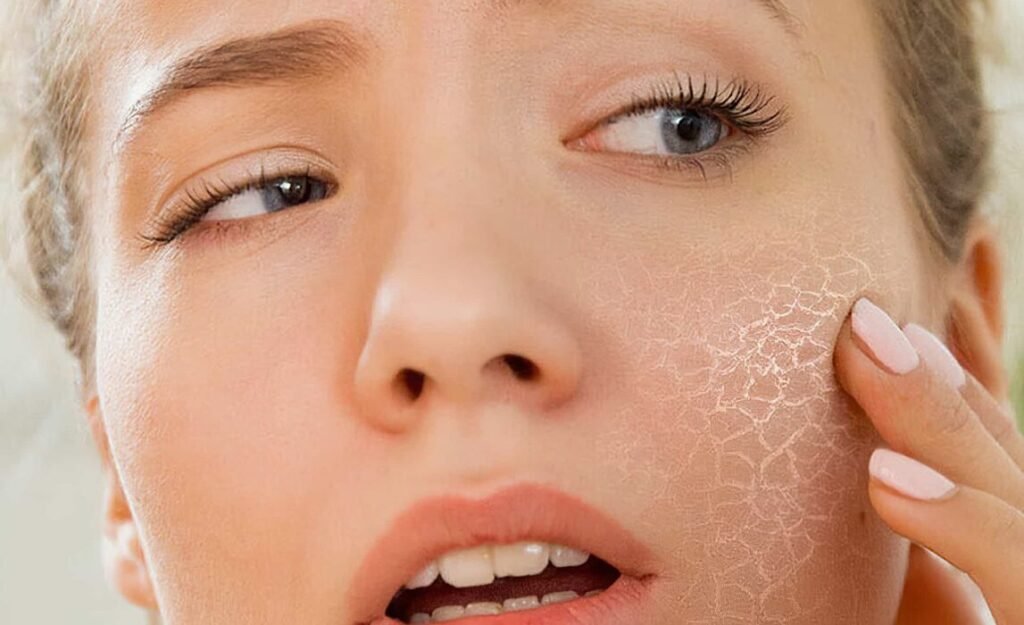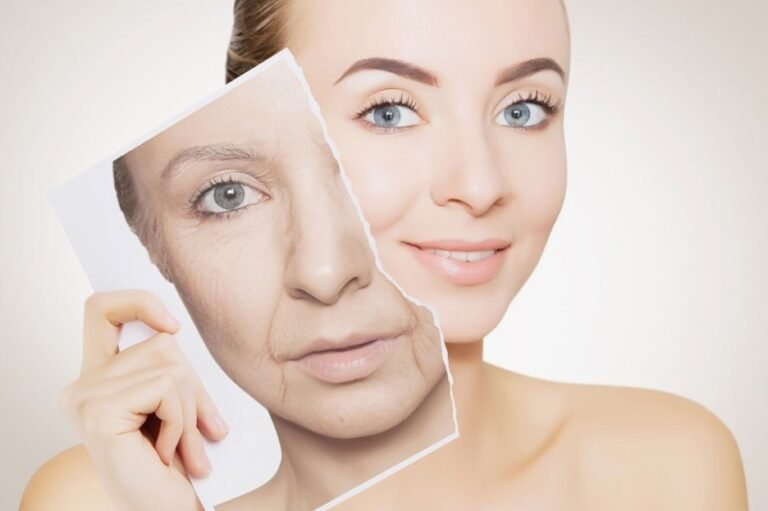Women Winter Skincare Routine for Dry Skin: Tips to Maintain Hydration
Dry skin can have difficulties throughout the winter months. The season can be tough for people whose skin is typically dry, necessitating extra care to preserve hydration and a healthy glow. With the correct winter skincare routine for dry skin, you can keep your skin nourished, smooth, and silky while shielding it from the elements.
Dry Skin: What Is It?
“Your face can’t defend itself from the environment as well as it should if it has dry skin. Zeichner (a well-known dermatologist) has claimed that when skin becomes dry, cracks form on its outer layers, which block proper hydration.
According to another report, “Dry skin makes morning prep even more crucial to its wellbeing and success in the coming day, according to Skin Health Guide.”
What Causes Winter Skincare Routine?
Wintertime temperature and humidity fluctuations make the ideal environment for xerosis or dry skin. For dry skin, the winter routine should be monitored.
The epidermis is the outermost layer of skin, while the stratum corneum is a thin outer layer that forms a barrier. The skin barrier is composed of lipids and dead or dying skin cells. The skin barrier creates a barrier that keeps dangerous toxins out of the body. The skin looks dry or itchy when the skin barrier is compromised.

Keep skin moisturized in winter for proper barrier functioning. Research Trusted Source has demonstrated that the skin contains fewer lipids in the skin barrier and less moisture in the winter than in the summer. These variations aggravate and cause dryness.
Baylor College of Medicine reports that hot baths or showers can damage the skin’s surface, leading to dryness. Furthermore, harsh soaps and vigorously rubbing skin when drying can further exacerbate this damage.
1. Gentle Cleansing for Hydration
Cleaning should be at the center of any skincare regimen. During wintertime, this task becomes especially crucial. A moisturizing cleanser should effectively remove dirt and pollution without drying your skin.
Advice: When cleansing your face, choose lukewarm water for increased benefits. This will not strip natural oils from your skin and will add more beauty.
2. Hydrating Toners: Increased Humidity
Moisturizing toners provide essential hydration after cleansing and can prepare your skin to absorb additional skincare products. Toners containing moisturizing components such as hyaluronic acid, aloe Vera extract or rose water will prove invaluable in replenishing lost moisture in your skin.
Advice: For maximum absorption and decreased friction, patting the toner onto your skin with your hand instead of cotton pads to apply the solution can reduce unnecessary friction while increasing absorption rates.
3. Use a Hyaluronic Acid-Rich Serum
Hyaluronic acid is an incredible hydration aid. It is preferred and highly recommended during dry winter weather conditions. Its ability to retain 1000x its weight in water makes it essential for keeping skin hydrated throughout the day and night. Before bedtime and after toning, using an anti-ageing serum containing this powerful moisturizer will ensure long-term hydration of the skin through its use.
Advice: To reap more benefits, apply hyaluronic acid serum to slightly damp skin. This will increase its moisturizing capabilities and make your skin blusher.
4. Pay Attention to Your Lips and Hands
Winter dry skin affects the face, lips, and hands. Lip balm containing lanolin or beeswax may keep lips soft and shiny. Similarly, lotion enriched with ceramides and glycerin can keep hands hydrated if they are washed frequently.
Advice: To combat dryness successfully, you should apply a thick layer of lip balm before going to bed at night and hand cream after every hand wash.
5. Stay Hydrated Internally
Internal care should not only extend to external considerations. Staying hydrated through internal means has many positive benefits for body and mind alike, specifically during winter’s low temperatures when thirst signals may go unheeded. Regularly consuming herbal tea and water-rich fruits such as watermelons and cucumbers will ensure adequate overall hydration levels.
Advice: Even during wintertime, remain hydrated by always keeping a water bottle with you.
6. Never Forget Sunscreen
Apart from temperature or season, sunscreen must always be worn year-round. Even on cloudy days, UVB rays from the sun damage skin cells, which leads to premature ageing, hyperpigmentation and dryness to the surface. Many sunscreens now come up with moisturizers with more quantity for hydration.
Advice: For optimal hydration after applying sunscreen, Find out and choose a formula with dimethicone or glycerin. These contain moisturizing elements that lock in hydration and keep skin soft and supple. It helps to maintain optimal hydration once the sunscreen is applied.
7. Use Hydrating Masks To Enhance Your Sleep Cycle
Your skin regenerative processes take place while you sleep, so the evening is the ideal time for giving yourself some TLC with overnight moisturizing masks containing soothing, deeply moisturizing ingredients such as honey or aloe vera. These masks will ensure smooth and plump skin when you wake up.
Advice: For optimal results when increasing moisture, layer an overnight mask on top of any heavy moisturizer used at night – this can help promote better hydration levels.
Conclusion
Winter can be incredibly challenging for skin health and appearance, but with proper skincare regimen and product use, you can lock moisture back into the surface layer of the skin and preserve its look. You can ensure that your skin remains hydrated and healthy all winter by using gentle moisturizing products and moisture-boosting techniques such as serums, thick moisturizers, and overnight treatments.
FAQs
1. What sort of wintertime cleanser is best for dry skin?
Winter calls for gentle yet moisturizing cream-based cleansers; avoid harsh sulfate containing cleansers, which could strip your skin of its essential lipids and oils.
2. Are we required to wear sunscreen during winter?
Yes, UV radiation from the sun still causes skin damage that can result in dryness, hyperpigmentation, and early signs of ageing in your complexion.
3. What should I do after showering if my skin feels tight and itchy?
A hot shower may strip your skin of its protective oils that provide nourishment. To rehydrate, use lukewarm water when taking your bath or shower and moisturizer afterwards to replenish moisture loss.







